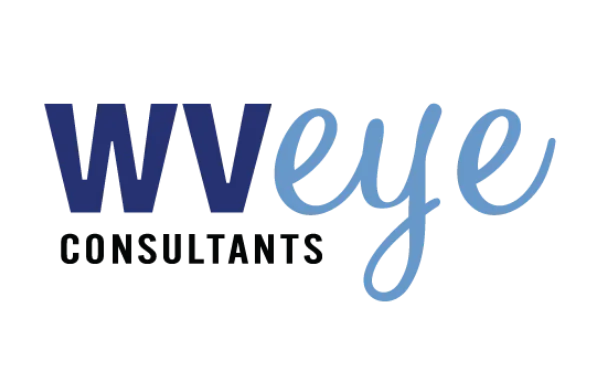Cataract Evaluation & Surgery
Eye Care Services

Restore Clear Vision with Comprehensive Cataract Care
Our Cataract Evaluation and Surgery services combine advanced diagnostics with precise surgical options to treat cataracts effectively, helping you regain clear and vibrant vision.
What is a Cataract?
A cataract is a clouding of the normally clear lens of the eye. For people who have cataracts, seeing through cloudy lenses is a bit like looking through a frosty or fogged-up window. Clouded vision caused by cataracts can make it more difficult to read, drive a car (especially at night), or see the expression on a friend’s face.
Most cataracts develop slowly and don’t disturb your eyesight early on. But with time, cataracts will eventually interfere with your vision.
At first, stronger lighting and eyeglasses can help you deal with cataracts. But if impaired vision interferes with your usual activities, you might need cataract surgery. Fortunately, cataract surgery is generally safe, effective procedure.
How do you remove a Cataract?
Cataracts are removed in an outpatient surgical procedure. Numbing medicine is given using eyedrops as well as an anesthesia that allows the patient to be aware, but deeply relaxed and comfortable.
After the cataract is removed, a manmade lens called an intraocular lens (IOL), is placed into the eye to restore the focusing power of the old lens (cataract). This helps improve your vision. Depending on the power of the IOL and the type implanted, glasses may not be needed after surgery.
The surgery typically lasts about 15 minutes. One eye is done at a time, meaning you will return generally 1-2 weeks later for the removal of the second eye cataract, if needed.
What to Expect in Your Cataract Surgery Consultation
During your consultation, our staff will gather information about any medical history or eye conditions you may have. We will also ask you about how your vision impacts your lifestyle to help us guide you into the lens option that will be the best choice for you.
As the doctor gets to know about you and your specific needs, it allows for an opportunity for you to ask more specific questions about the procedure, consider any choices such as the type of lens that’s implanted in place of the cloudy natural one that’s removed, and become familiar with things you need to do to prepare for surgery and recover well afterwards.
Testing You Can Expect During Consultation Visit
Typically, a cataract evaluation consists of the following:
Medical History Review: Checking your health both specific to your eye and your overall health before surgery.
Visual Acuity Test: Reading letters of various sizes off of an acuity chart, or an equivalent test.
Slit-Lamp Exam: Illuminated exam of your eye’s structures such as the cornea, iris, lens, and space between the iris and cornea.
Retinal Exam: A dilated exam that includes examination of your eye’s lens, which in the case of cataracts will be cloudy.
Tonometry Testing: A check of your internal eye pressure.
Intraocular Lens (IOL) Options
There are various types of replacement lenses available. These are called intraocular lenses (IOLs) – like a standard lens, they also replace your natural lens in the eye, but are generally considered an elected “upgrade” from standard lenses.
Below are a list of the lenses we offer at West Virginia Eye Consultants. Please note that not all lens options are medically appropriate for each patient. This is the importance of discussing your options with your ophthalmologist at the consultation, to help decide which option is best for you!
STANDARD IMPLANT
A standard implant is a monofocal lens that will replace your natural lens at the time of cataract surgery, correcting your vision at one focal distance. With a standard implant, it is very possible that glasses will still be required at a full time or part time basis. A standard implant is generally covered by insurance, however, if you are seeking to reduce dependence from glasses or contact lenses, there may be additional options that are available to you that are not covered by insurance.
Traditional lens
Does not correct astigmatism
Corrects vision at one distance only (typically distance vision)
Does not correct near vision
Requires glasses full-time after surgery
Covered by insurance
TORIC IMPLANT
Toric implants correct astigmatism, which will help you see clearly far away without the need for glasses, however, Toric implants do not correct near vision. Typically, this means that we expect you to need over the counter reading glasses for your “up and close” and “fine detail” vision. In rare cases, a toric implant can rotate or the eye may heal in a way that we did not anticipate. If this occurs, an additional procedure may be necessary to achieve your expected result.
Toric lens
Corrects astigmatism
Does not correct near vision
Requires reading glasses after surgery
Not covered by insurance
MULTIFOCAL IMPLANT
Multifocal implants are designed to reduce your need for glasses for both distance and near vision. This is one of the best options we have available to reduce your need for glasses, but the implants are not perfect. We expect your vision to be clear for distance vision (driving, watching TV, etc.) while also being able to comfortably see some small print such as graphics and images on a cell phone or tablet. Multifocal implants are not for everyone and do have some disadvantages. We expect that you will still need over the counter reading glasses for some situations such as fine print on medicine bottles, phone books, and in low lighting conditions such as in restaurants. You will also notice rings and halos around lights at night. These rings are not typically visible during the day and improve slowly over the first year but will always be present to some extent. Patients who choose a multifocal implant may also notice a small loss of contrast sensitivity and experience a reduced image quality. About one percent of patients have persistent night vision complaints, occasionally requiring an exchange of the lens. If this is something you feel that you cannot overcome with time and adjustment, this implant option may not be the best fit for you.
Multifocal and extended depth of focus lens
May correct astigmatism
Good option to reduce need for glasses for all distances
Requires reading glasses after surgery in certain conditions
Will see rings and halos around light
Not covered by insurance
LIGHT ADJUSTABLE LENS
The light adjustable lens is the only fully customizable lens option and the only implant that can be adjusted AFTER your cataract surgery. This may reduce the need for glasses or contact lenses because the focusing power of the lens can be adjusted. After surgery, your surgeon can apply UV light to the lens in order to refine and tailor your final vision result. The UV light is delivered by your surgeon during a short, in-office procedure. The number of light adjustment treatments you receive will be determined by your doctor, however you can expect a minimum of 2-4 treatments. When you and your doctor are satisfied, you will receive a final light treatment to “lock-in” your vision. You are also required to wear protective eyewear full-time immediately after your surgery until 24 hours after your “lock-in” treatment.
Customizable outcome for best vision at your chosen distance
Additional testing and measurements required
Less likely to require glasses post surgery
Extensive post-operative care and visits required
UV protective eyewear for initial post-op required
Not covered by insurance
Questions prior to your visit?
A member of our surgical support team should reach out to you and give you an extensive education of each lens option prior to your visit! However, if you have any additional questions that we may answer for you prior to your appointment, please do not hesitate to contact us! You may reach a member of our surgical support team at:
Claire: 304-982-8258
Kaitlyn: 304-982-8259
Email: [email protected]
New to West Virginia Eye Consultants?
To ensure a smooth and efficient first visit, please complete our New Patient Packet before your appointment. This helps us provide you with timely and personalized care.
New to West Virginia Eye Consultants?
To ensure a smooth and efficient first visit, please complete our New Patient Packet before your appointment. This helps us provide you with timely and personalized care.
TAKE THE FIRST STEP TOWARD BETTER VISION
Expert Eye Care, Personalized for You
If you're struggling with vision issues or simply want to stay on top of your eye health, WV Eye Consultants is here to help. Our expert team combines advanced technology with personalized care to deliver real results for your vision.
Advanced Technology – We use the latest tools to detect and treat eye conditions early.
Comprehensive Services – From routine exams to complex treatments like glaucoma and cataract care.
Personalized Care – Our experienced optometrists tailor solutions to your unique needs.
Trusted Expertise – A proven track record of improving eye health and clarity.
Support Every Step – We’re with you from your first exam through ongoing care.
© 2025 WV Eye Consultants. All Rights Reserved.

